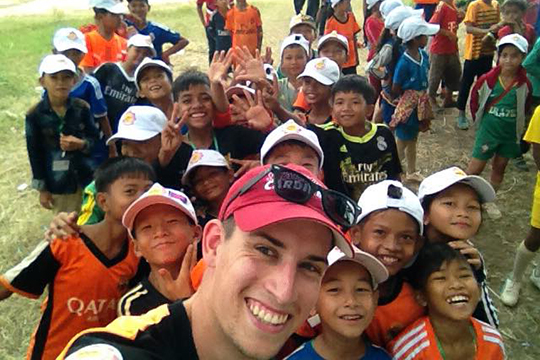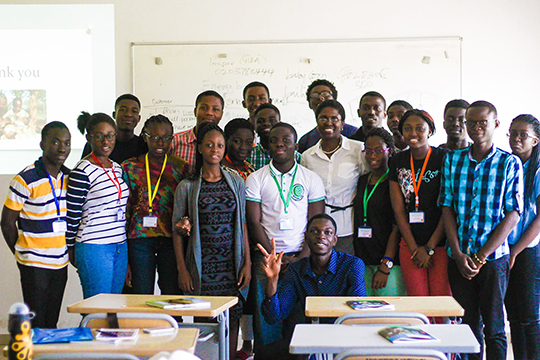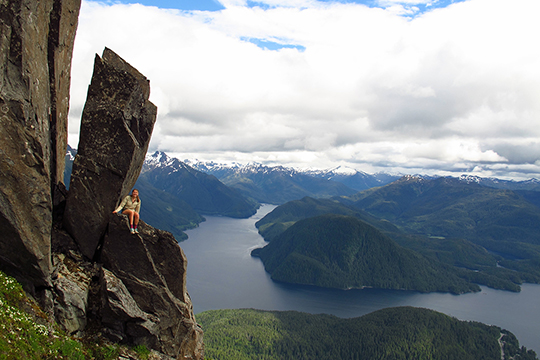Posts published in November, 2016

Using sport to engage youth
By Eric Fabre, ’16 (International Relations)
Applause broke out as Ed Foster-Simeon, CEO at the US Soccer Foundation, closed out the 2016 Soccer for Success National Training. It was the fourth and final day of the event, and the emotion from days of hard work was tangible in the room of this Washington, DC hotel. I had been at the Foundation for only 2 weeks, but in that short time had already witnessed the amount of time and effort that was put into this event. Over 150 people from around the country had flown into DC to learn how to run a local after school soccer program, designed by the US Soccer Foundation and their partner communities. I had been a small part of the implementation of the National Training, and felt humbled to be in the same room as so many people that have been true catalysts for change in their respective communities.
This moment stands out to me from my summer as a Donald Kennedy fellow because I realized that everyone in the room had chosen to use our program to create positive change in their communities. They believed that using sport was the best way to engage youth and affect their lives in a positive way. Seeing the emotion as they watched the final speech and the hugs and handshakes that went around as they said their goodbyes to their fellow coaches told me all I needed to know: this was the work I wanted to do, and I was proud to support these people in their community work.
Eric is a 2016-17 fellowships peer advisor.

A summer of teaching and learning
By Brian Fleischer, ’19 (undeclared)
It was under the hot Accra sun that I realized why I was back home, why I was among this amazing group of students, and why I was doing this work in the first place.
When I received the Donald Kennedy Fellowship to work with high school students to propose and develop innovative solutions to problems they had discovered within their communities, I was still unsure if that was how I wanted to spend my summer. I was also unsure if I would be capable to lead the cohort of peer mentors and generally facilitate this project.
Not long after interacting with these students I realized that this was also a learning experience for me and a chance to immerse myself within and discover myself. I got to know and understand to some extent the various problems these students encountered and marveled at the novelty and practicality of the ideas presented. From “P-Coal,” a greener and cheaper alternative for charcoal made of waste, to “Senior Smile,” a youth movement for the neglected elderly, these ideas proved to the students themselves, their communities, and myself that the youth are indeed central drivers of positive change within their communities.
It was under that hot Accra sun that I realized that I was there to find myself.

Real people affected by a warming world
By Sienna White, ’19 (undeclared)
I spent two months this summer living in Sitka, Alaska, working on a radio show about climate change. They were two long months full of rain, clouds, and watery sunlight, with a sky that never really went dark. Every day I’d walk three blocks down to the Island Institute and hole up, editing audio, calling people, reading. The work itself was fascinatingly behind-the-scenes. You read a lot about climate change up north. Part of it is science: Arctic regions are warming at nearly twice the rate of their equatorial counterparts. The effects of climate change are hauntingly dramatic. Houses fall into the sea. Glaciers disappear. Tides turn red.
But aside from the booming drama, what’s missing so often from these stories are the people who call these places home. Through the radio show, we hoped to explore all the nuanced connections people have with place, and the fragile grief inevitable with a warming world. I listened to hundreds of voices, through interviews and my headphones, and with every reflection, tangent, and fragmented thought, I felt as if I was honing in on something. I couldn’t quite tell what I was feeling—empathy? understanding? perspective?—but it felt important, it felt thoughtful and shapeless, and I was thankful to feel it, whatever it was.
